
In 2024, How To Fix Apple ID Verification Code Not Working From iPhone XS

How To Fix Apple ID Verification Code Not Working On Apple iPhone XS
In smartphones, the Apple ID stands out as a cornerstone of security for iPhone users and the broader iOS ecosystem. Its robust verification features are a key reason why many people choose iPhones. Thus, its heightened security is highly valued. However, even extremely reliable systems can encounter hiccups.
Sometimes, you might need help with the issue of the Apple ID verification code not working. This leads to frustration, especially if you need to remember your Apple iPhone XS ID details. This 2024 guide will delve into practical solutions to fix issues with Apple ID verification codes, helping you regain access to Apple ID and peace of mind.

Part 1: When Does the Apple Verification ID Failed Prompt Appear?
Before diving into solutions, it’s essential to understand the various scenarios that can trigger the “Apple Verification ID Failed” prompt. Recognizing the cause of the problem is the first step toward the right fix. Let’s explore the common reasons you might encounter this issue:
Wrong Password Input
One of the most straightforward reasons for a failed verification is entering the wrong password. This could be a simple typing error or misremembering your password. Repeated wrong attempts can also lead to your account being temporarily disabled as a security measure.
Apple Server Issues
At times, the problem may not be on your end. Apple’s servers can experience downtime or technical glitches like any other online service. During such instances, verification processes might fail, as the server cannot authenticate your credentials.

Slow Internet or Intermittent Connection
A stable and reliable internet connection is improtant for the verification process. If your internet is slow or experiencing intermittent connectivity, it can disrupt the communication between your device and Apple’s servers, leading to verification failure.
Two-Factor Authentication (2FA) Issues
Apple’s two-factor authentication provides an extra layer of security. However, it can also be a source of problems. If there’s a delay in receiving the 2FA code or if 2FA fails to work, you won’t be able to complete the verification process. This could be due to network issues or, sometimes, glitches within the 2FA system itself.
Suspicious Activity
Apple takes your security seriously. If there’s any unusual activity detected on your account, such as login attempts from unfamiliar locations or devices, Apple might lock your account as a precaution. This can trigger the verification failed prompt as the system seeks to protect your account from potential unauthorized access.
By understanding these scenarios, you can diagnose better why you’re facing the issue of Apple verification ID not working. In the following sections, we will explore solutions tailored to these specific problems, helping you regain access to your account efficiently.
Part 2: How To Fix Apple ID Verification Failed
Encountering an “Apple ID Verification Failed” error can be frustrating. Here are some practical solutions that correspond to the common reasons for this issue. These steps should help you regain access to your Apple ID.
Method 1: Connecting to a Stabler Internet Connection
A stable internet connection is crucial. If you’re encountering issues, switch to a more reliable Wi-Fi network. Alternatively, toggling your Wi-Fi or mobile data off and back on can refresh your connection.
Method 2: Changing Password/2FA Device Using Apple ID Account
If you’re facing troubles due to password errors or 2FA issues, resetting your password or updating 2FA settings may help. Visit Settings > Apple ID account page > Sign In & Security and follow the instructions to Change Password or update your Two-Factor Authentication settings.

Method 3: Check iPhone’s Date & Time Settings
Incorrect date and time settings can influence Apple ID verification. Go to Settings, select General, and tap on Date & Time. Ensure Set Automatically is enabled, allowing your Apple iPhone XS to adjust these settings according to your time zone.

Method 4: Signing Out/In Your Apple ID
Sometimes, simply signing out and back into your Apple ID can resolve verification issues. Navigate to Settings, tap your name at the top, scroll down, and select Sign Out. After signing out, sign back in and check if the issue persists.
Method 5: Disabling VPN
If you’re using a VPN, it can sometimes cause issues with Apple ID verification. Try disabling your VPN from the Settings or the VPN app you’re using, and then attempt the verification process again.
Method 6: Updating to the Latest iOS
Running an outdated iOS version can cause compatibility issues. Go to Settings, select General, and tap on Software Update. If an update is available, download and install it to ensure your device is up-to-date.
Method 7: Checking Apple Server Status and Trying Again Later
Sometimes, the problem is on Apple’s end. Check the Apple System Status page to see if there are any issues with their servers. If there are, it’s best to wait and try the verification process later.
By following these methods, you should be able to resolve the “Apple ID Verification Failed” issue and regain full access to your Apple ID functionalities.
Part 3: How To Remove Apple ID Account From iOS Device
If the above fixes have proven unsuccessful, it might be time to consider removing the Apple ID directly from your device using a third-party tool. This can often resolve the failed verification of Apple ID on new or old phones when other methods fail.
Thankfully, Wondershare Dr.Fone offers a solution with its Screen Unlock (iOS) feature, which includes a Remove Apple ID/iCloud account removal function. It’s a very handy tool for reviewing verification requirements, especially when you forget your Apple ID credentials.
Removing Apple ID Account With Dr.Fone - Screen Unlock (iOS)
Here’s how to use powerful Dr.Fone’s - Screen Unlock (iOS) to remove Apple ID.
Step 1: Download, install, and launch Wondershare Dr.Fone.
Step 2: Go to Toolbox > Screen Unlock > iOS.

- Step 3: Select Remove Apple ID to proceed.
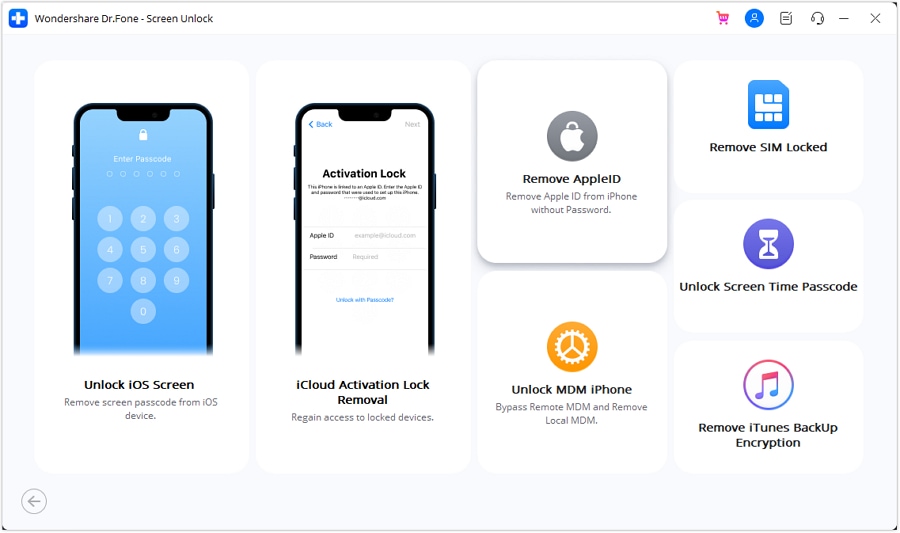
- Step 4: Choose Unlock Now once the connectivity status is confirmed.
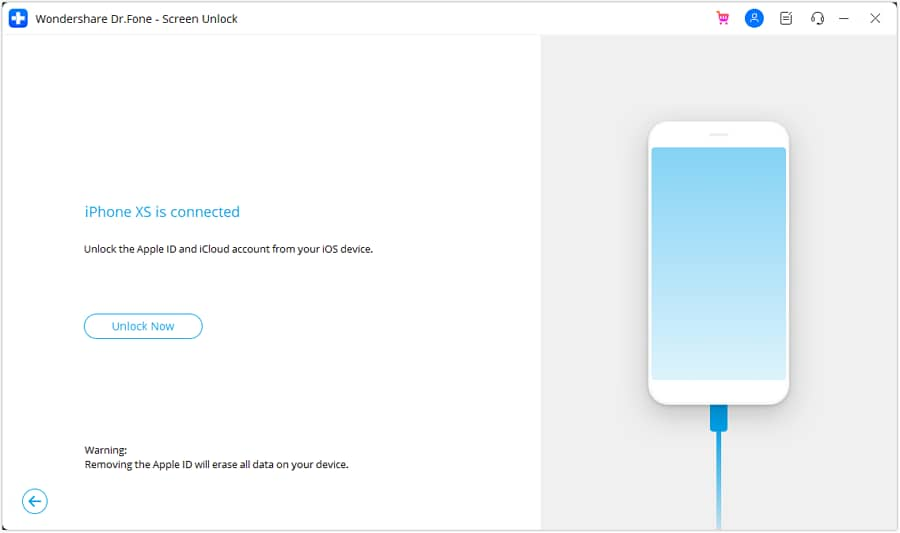
- Step 5: Ensure you have a screen lock and the two-factor authentication enabled. Follow the on-screen instructions.
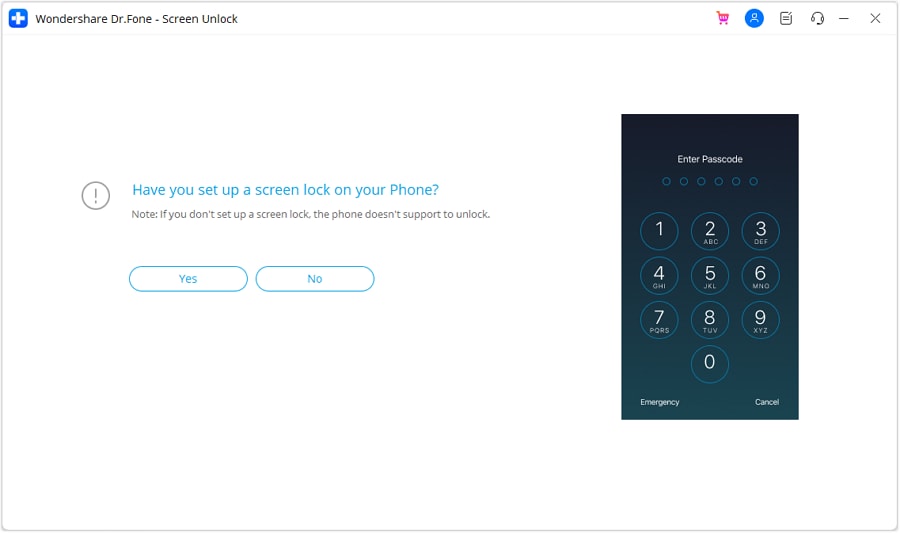
- Step 6: Put your device into Recovery Mode or DFU Mode by following the on-screen instructions. Then, confirm the correct system version of your device.
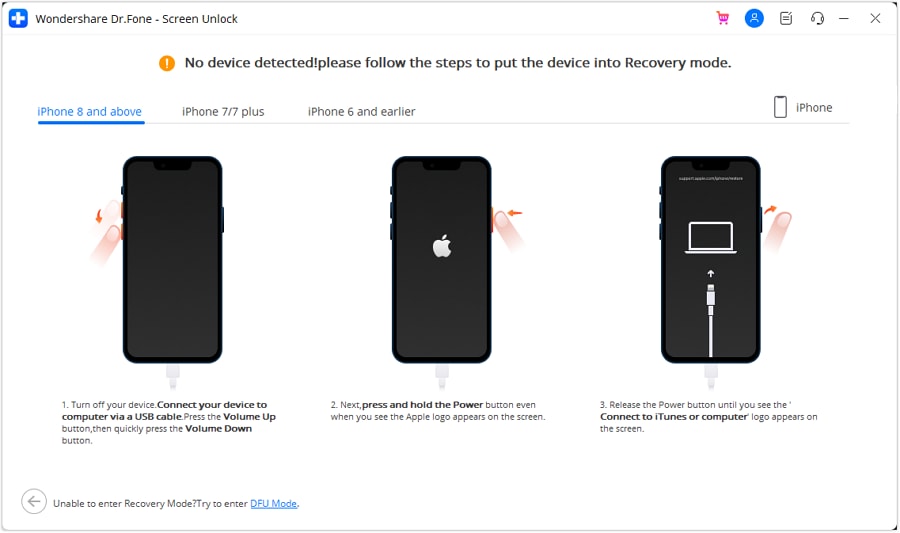
- Step 7: Wait for the download to finish on your software.
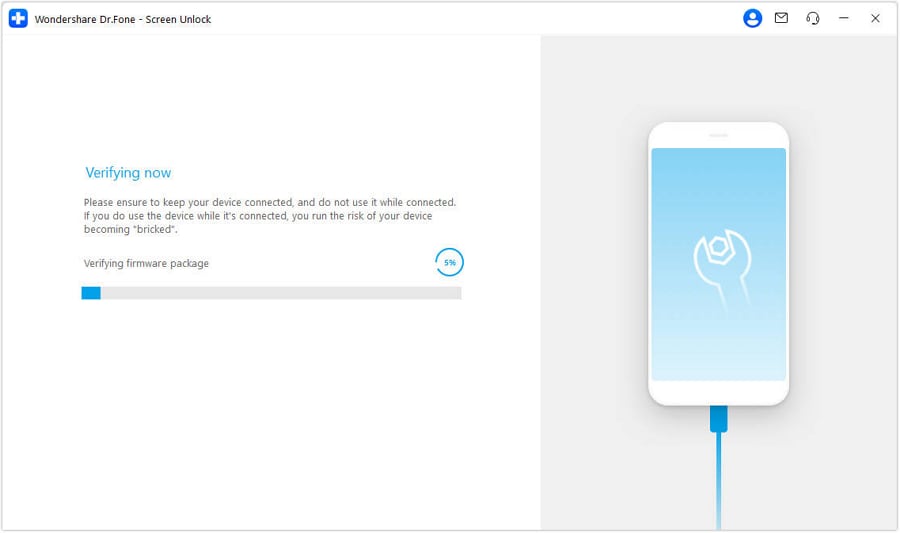
- Step 8: After the firmware is confirmed, click Unlock Now. Then, type in “000000” on the appearing text box and click Unlock.
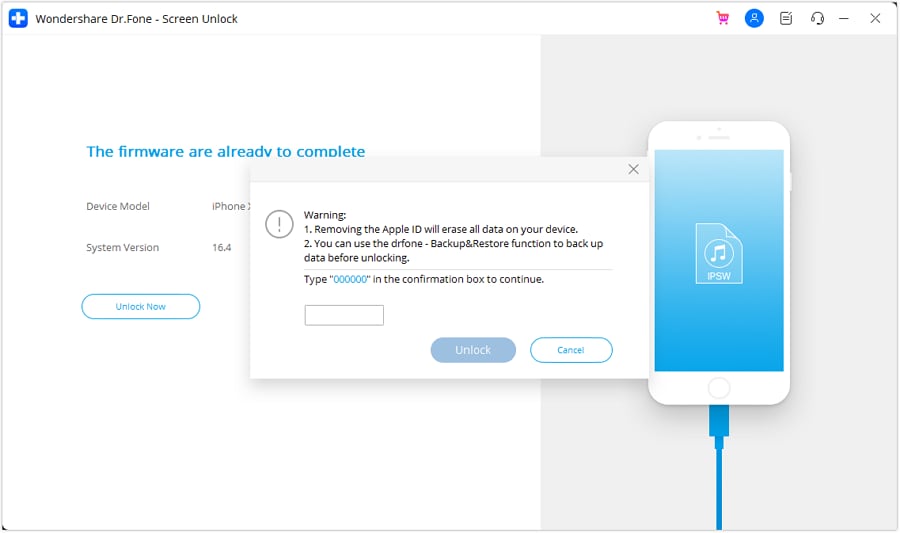
- Step 9: After the process is completed, click Done. If it still doesn’t work, then click Try again.
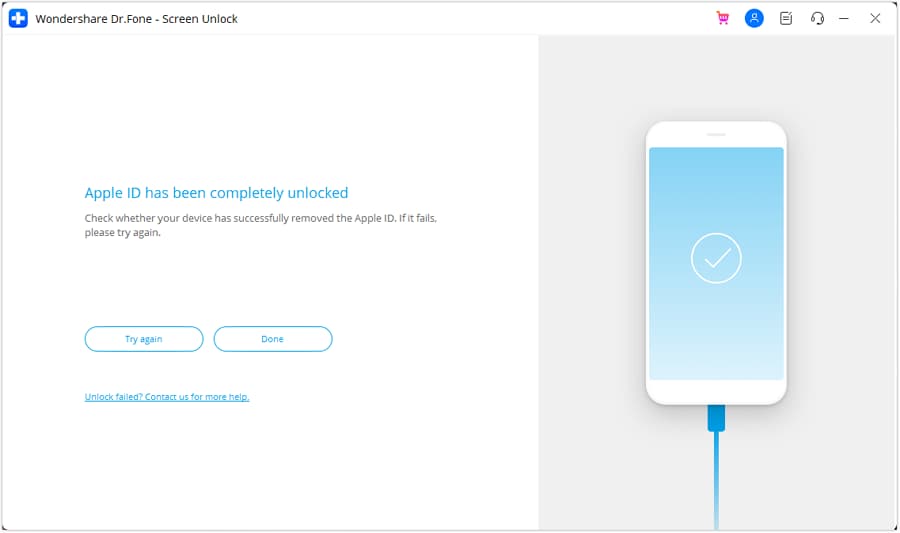
Conclusion
Navigating the Apple ID Verification Code not working issue can be a source of significant frustration. This guide aimed to alleviate that by detailing common triggers, such as password errors, server issues, and connectivity problems, and providing targeted solutions like ensuring stable internet, updating iOS, and checking server status.
For those rare instances where conventional methods fall short, Dr.Fone emerges as a reliable ally. Its Screen Unlock feature effectively addresses Apple ID-related hurdles. Whether you’re grappling with verification failures or other phone-related challenges, Dr.Fone - Screen Unlock (iOS) stands out as a dependable tool, ready to assist in simplifying your digital life.
Tips: Are you searching for a powerful Screen Unlock tool? No worries as Dr.Fone is here to help you. Download it and start a seamless unlock experience!
Troubleshooting ‘Error Connecting to the Apple ID Server’ On Apple iPhone XS
Experiencing an “error connecting to the Apple ID server“ can be a frustrating roadblock for users. Apple owners often face this issue, hindering seamless access to their Apple ID. Fear not; the guide unveils 11 practical solutions to troubleshoot the problem.
The article has everything from verifying your network connection to ensuring the accuracy of your Apple ID credentials. Don’t let the Apple ID verification failed dilemma linger. Explore the page below and navigate through these troubleshooting steps for a seamless connection to the server.
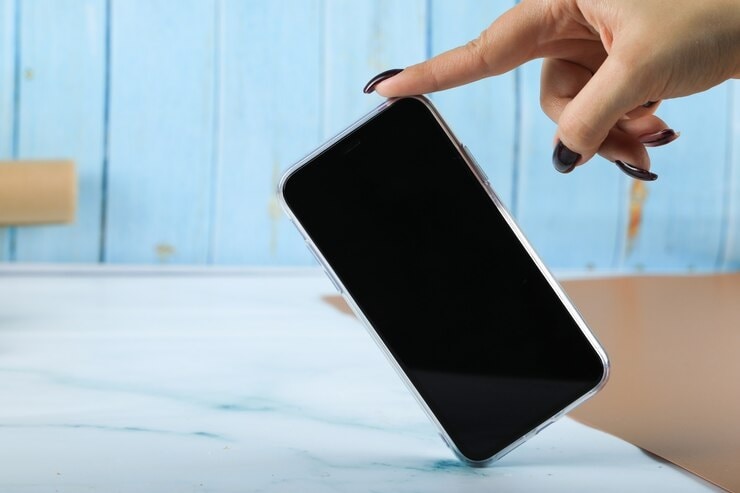
Part 1: What Causes the “Error Connecting to the Apple ID Server” Problem?
Below are the potential culprits if an error is connected to the Apple ID server. Understanding these causes is pivotal for effective troubleshooting.
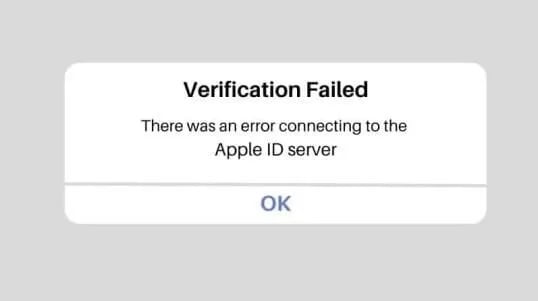
Temporary Problems With Apple Servers
Periodic disruptions in Apple servers can lead to the “Apple ID verification failed“ issue. These may occur due to routine maintenance or unexpected server outages.
The Internet Connection Is Not Working
The problem may also stem from a disrupted internet connection. You should investigate your Wi-Fi or cellular data to ensure a stable connection. Restarting routers or switching to an alternative network can also help.
Problems With Apple ID
Authentication issues can arise if users input incorrect Apple ID credentials or if their accounts face security concerns. Verifying and correcting these details or resetting the Apple ID password is crucial.
Incorrect Date and Time Settings
The device’s date and time settings must be accurate to establish a secure connection with the Apple ID server. You should check and adjust these settings, enabling automatic updates for synchronization.
Part 2: [10 Quick Solutions] There Was an Error Connecting to the Apple ID Server
The section below provides user-friendly fixes tailored to ease frustration and restore seamless connectivity.
Check Apple’s Servers
The initial step is to investigate the status of Apple’s servers. Server outages or scheduled maintenance can be the culprits behind the connectivity hiccup. Head to Apple’s service status page for real-time updates on server conditions.
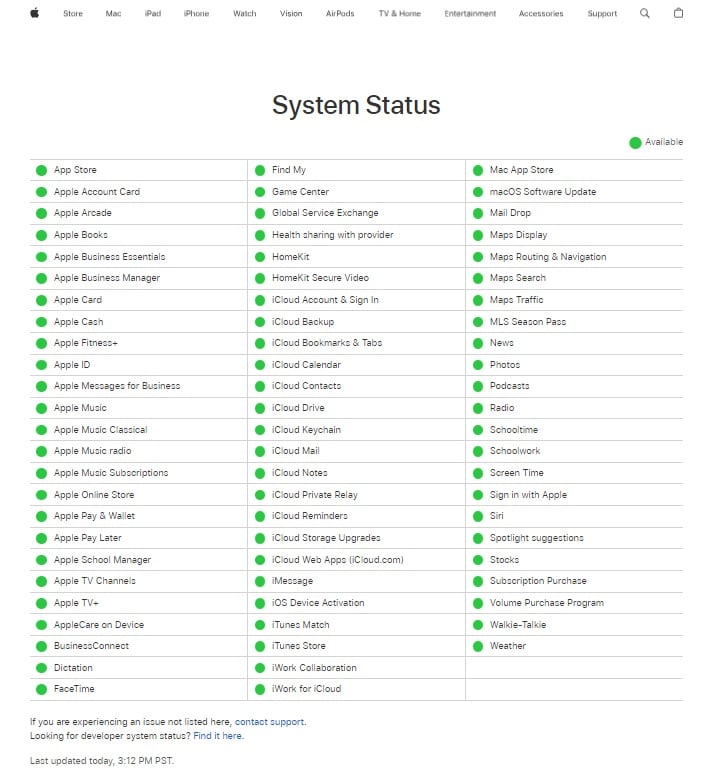
Check Your Network Connection
A fundamental yet crucial solution is to examine your network connection. Instabilities in Wi-Fi or cellular data can impede communication with Apple’s servers. Ensure a stable connection and troubleshoot any disruptions, considering a switch to an alternative network. You can follow this guide to check your network signal.
Set Up Another Admin User Account (for macOS Users)
Creating a new admin user account can serve as a strategic move for macOS users. Here’s how. It helps isolate issues tied to a specific user account. It provides insights into whether the problem is user-specific. Here’s how.
- Step 1: Open System Preferences on your Mac and choose Users & Groups.
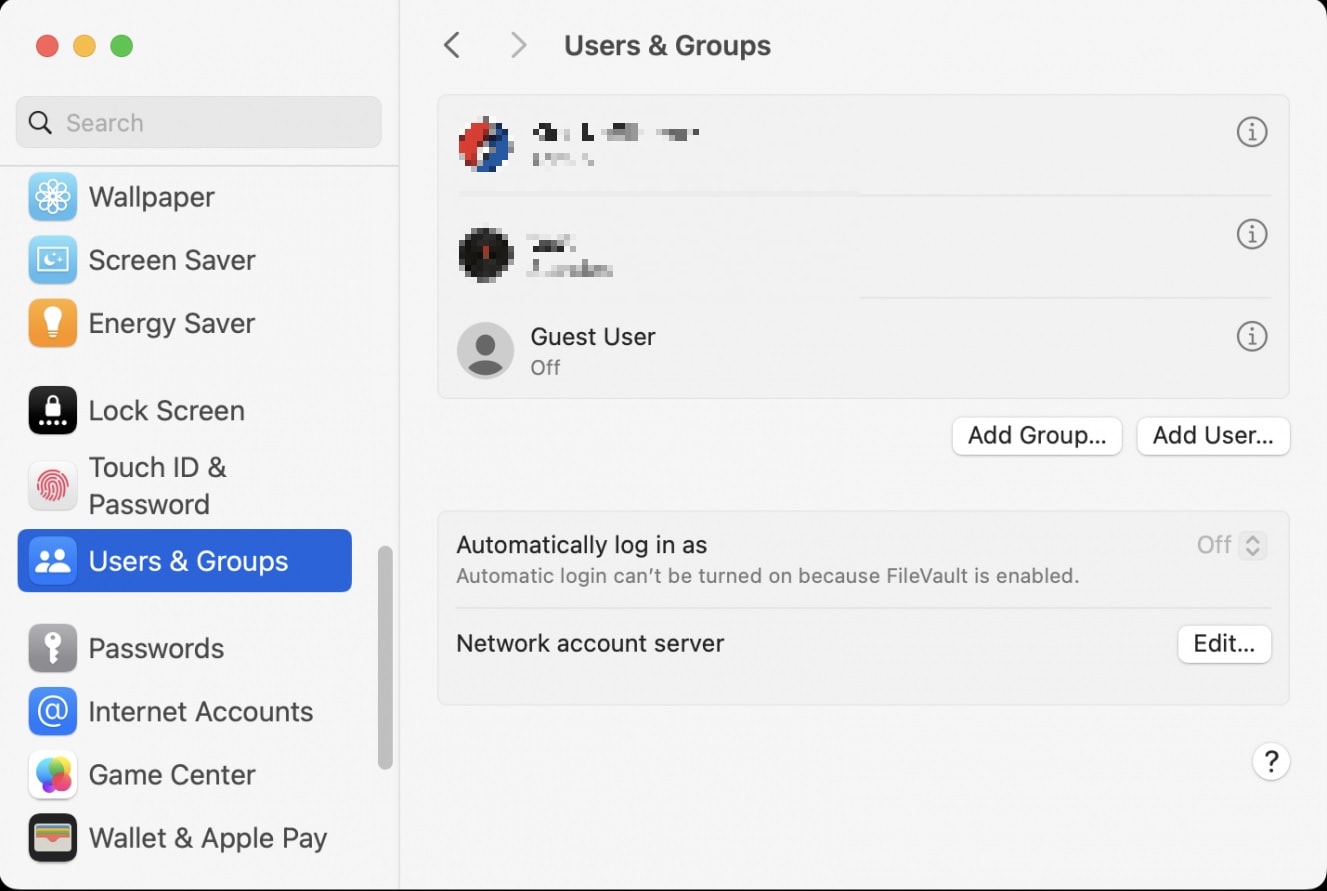
- Step 2: Click the lock icon and enter your admin password. Click the + or Add User… button to add a new user, selecting Administrator as the account type. Log in to the new account and check if the issue persists.
Update Your iOS or macOS Software
Outdated operating systems often contribute to connectivity issues. Ensure your iOS or macOS software is up to date by checking for available updates. Here’s how.
- For iOS: Go to Settings, tap General, and select SoftwareUpdate.
- For macOS: Open SystemPreferences, click on Software Update.
Download and install any available updates.
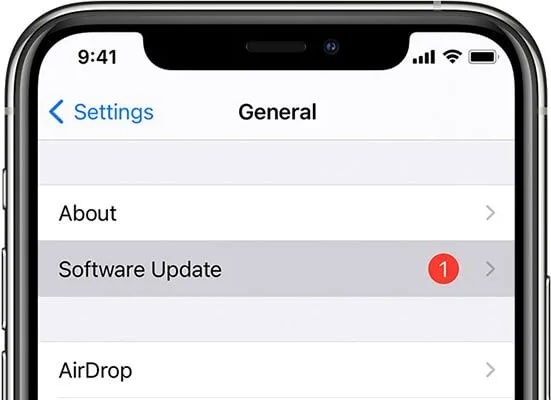
Boot macOS in Safe Mode
Booting your Mac in Safe Mode is another approach to troubleshooting. The mode disables unnecessary processes, allowing you to identify and resolve potential conflicts causing the connection error. To put your Mac into safe mode, restart it and hold down the Shift key. Release it when the Apple logo appears.
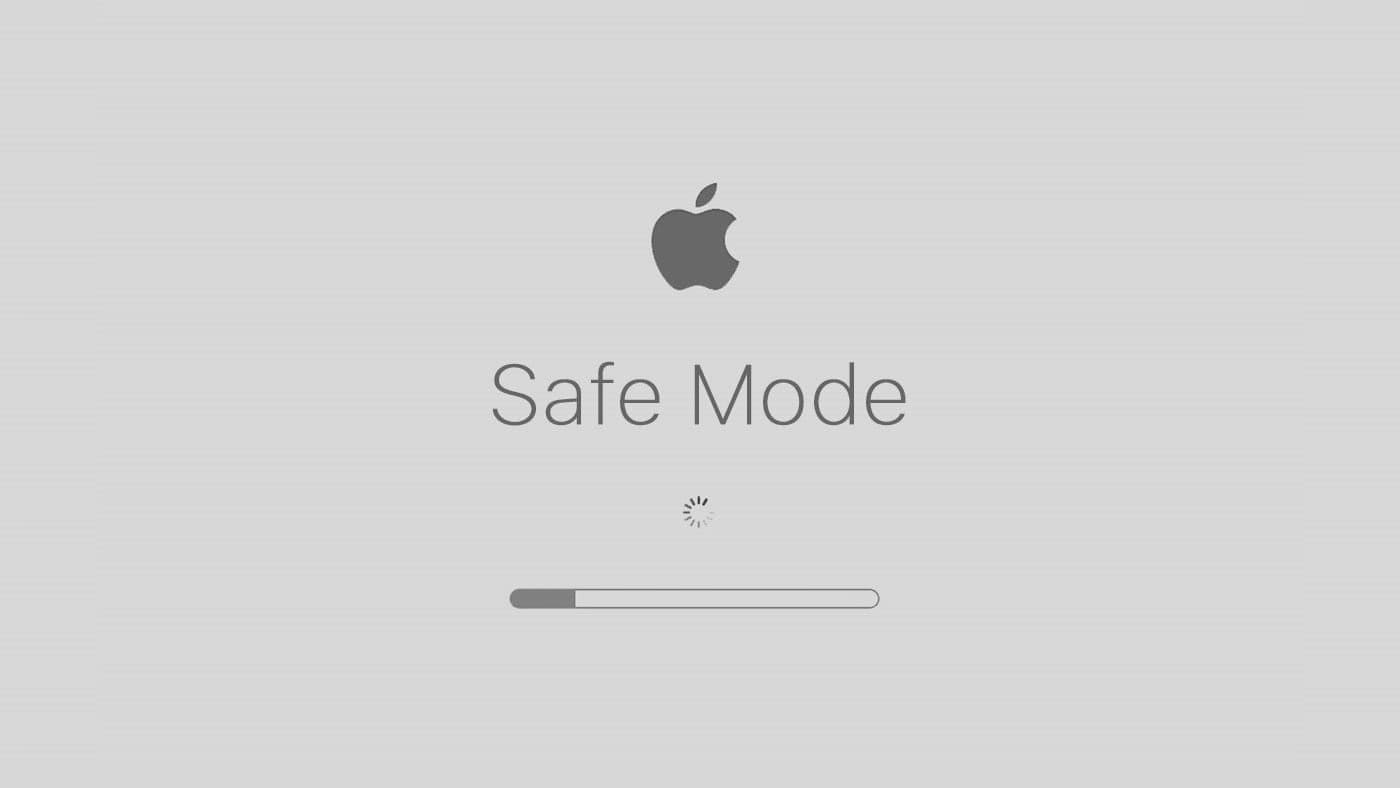
Restart Your Apple Device
A classic yet effective solution is to restart your Apple device. This simple action refreshes system processes and can resolve various connectivity issues. Power off your device and turn it back on to initiate a clean start.
Sign Out and Sign Back Into Your Apple ID Account
Temporarily signing out of your Apple ID account and then signing back in can be a virtual reset. The process refreshes the connection and addresses potential authentication issues, resolving the error.
- On iOS: Go to Settings, tap your Apple ID, and choose SignOut. Sign in again.
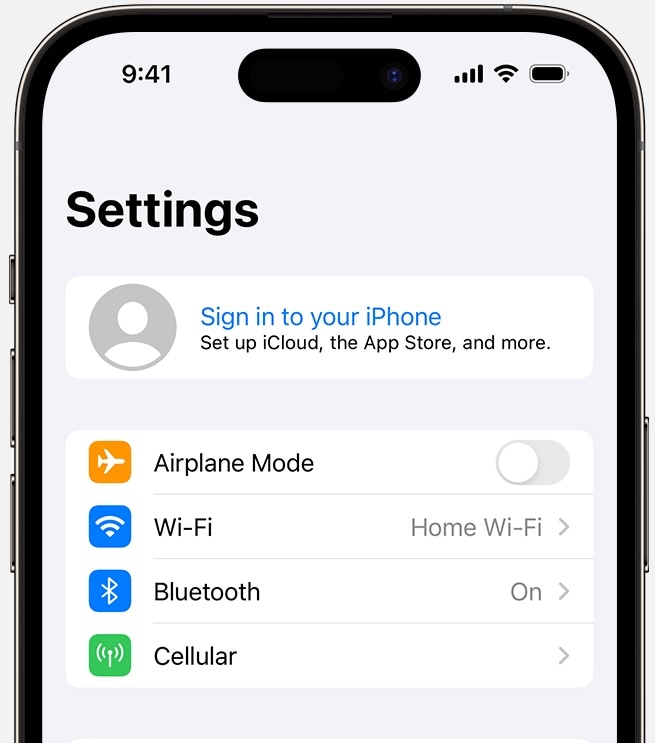
- On macOS: Open SystemPreferences, select Apple ID, and click Sign Out. Sign in again.
Reset Your Apple ID Password
Security concerns related to compromised credentials can contribute to the connection problem. If in doubt, initiate a password reset for your Apple ID. It not only enhances account security but also addresses authentication errors. Here’s how.
Disable VPN
If you use a Virtual Private Network (VPN), consider temporarily disabling it. VPNs can sometimes interfere with the connection to Apple’s servers, causing the error. Disabling the VPN allows you to test whether it’s the source of the problem.
Adjust Date and Time Settings Automatically
Inaccurate date and time settings on your device can lead to authentication failures. Ensure your device’s date and time are accurate and set to update automatically. This prevents synchronization issues with the Apple ID server.

If you’ve tried all the above and you’re still getting the error connecting to the Apple ID server, you may want to consider using Wondershare Dr.Fone - Screen Unlock. It is a powerful tool that can help you bypass the Apple ID lock screen on your Apple iPhone XS, iPad, or iPod touch.
Part 3: A More Comprehensive Solution: Use a Professional Third-Party Software
Wondershare Dr.Fone is renowned for its versatile features. The platform’s Screen Unlock function is designed to address Apple ID-related challenges. What’s more, Dr.Fone is compatible with various iOS versions. It ensures its applicability across a broad range of devices. Its user-friendly interface makes it accessible for both novice and experienced users.

Dr.Fone - Screen Unlock (iOS)
Unlock iPhone/iPad Lock Screen Without Hassle.
- Simple, click-through, process.
- Unlock screen passwords from all iPhone and iPad.
- No tech knowledge required, everybody can handle it.
- Supports the latest iOS version fully!

4,395,217 people have downloaded it
Key Features
- **Comprehensive lock screen removal.**Fone excels in eliminating various lock screens on iOS devices, providing an all-encompassing solution to accessibility challenges.
- **iCloud activation lock and Apple ID bypass.**The software stands out by allowing users to bypass the iCloud activation lock and Apple ID without a password. The feature is particularly useful for users facing login complications.
- **MDM bypass without data loss.**Fone goes beyond standard capabilities by enabling users to bypass Mobile Device Management (MDM) without data loss. This function is crucial for corporate settings or individuals managing multiple devices.
- **Effortless process.**Simplifying the user experience, Dr.Fone offers straightforward steps for the unlocking process.
Step-by-Step Guide on Using Dr.Fone - Screen Unlock
Below are the steps to use Dr.Fone - Screen Unlock.
Step 1: Download and Install Dr.Fone - Screen Unlock on your computer. Launch the app afterward,
Step 2: From the main interface, choose the Screen Unlock option. Next, connect your iOS device to the computer using a USB cable. Click on iCloud Activation Lock Removal to initiate the process.
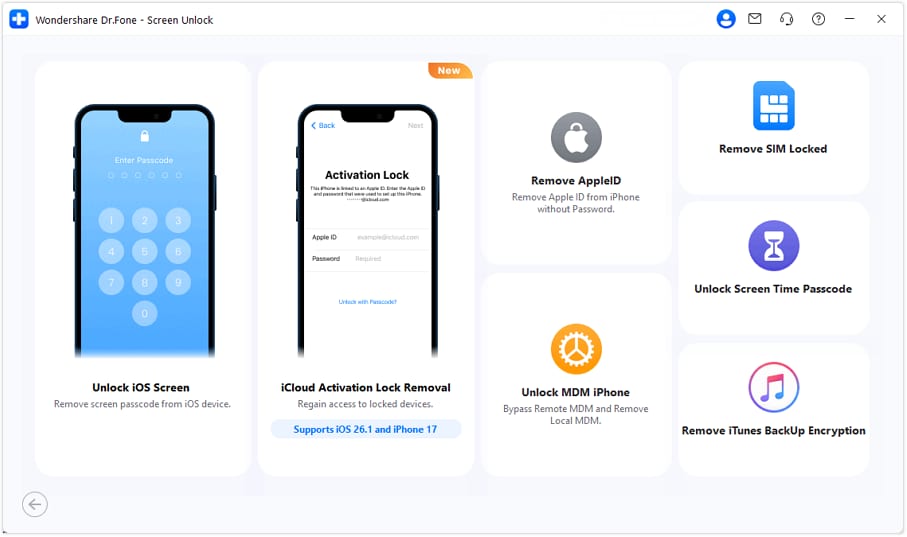
- Step 3: Follow the on-screen instructions and wait for Dr.Fone to detect your device information automatically. From there, the software will provide the necessary firmware package. Click Unlock Now to initiate the process.
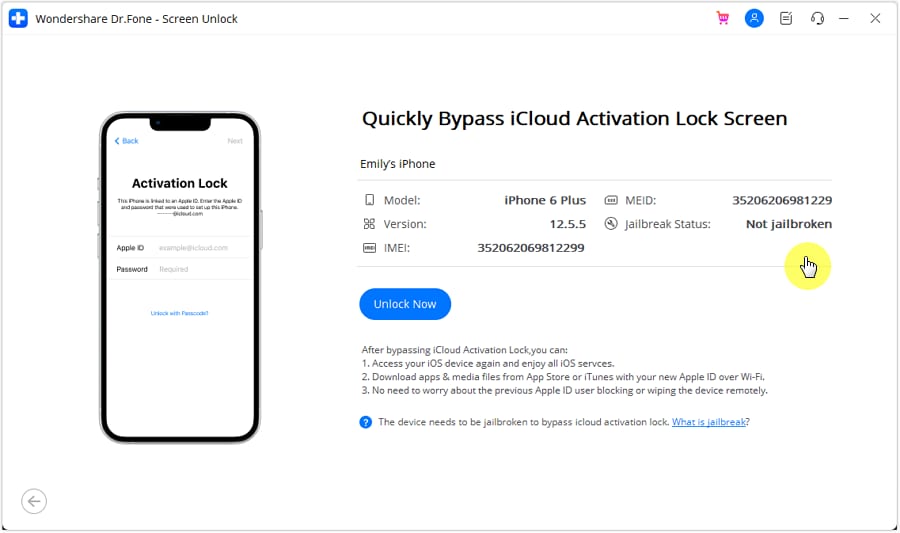
- Step 4: Upon completion of the process, a confirmation message will be displayed on the window. Click the Done button to finalize the unlocking of the Activation Lock.
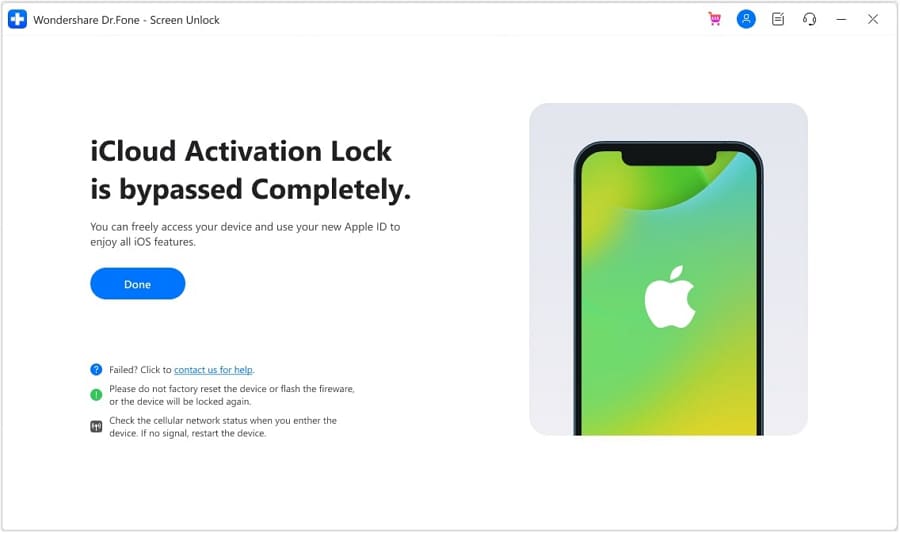
Conclusion
Don’t lose hope if you still can’t connect to the Apple ID server. Take advantage of the provided solutions for a seamless resolution. However, it would help if you also consider the convenience and effectiveness of Dr.Fone - Screen Unlock for a comprehensive fix.
If the Apple ID verification failed error persists, reaching out to Apple Support remains a reliable avenue for additional assistance with your Apple ID connectivity concerns. Your resolution journey begins with these steps, ensuring a swift return to hassle-free Apple services.
The Easy Way to Remove an Apple ID from Your MacBook For your Apple iPhone XS
Apple has a great ecosystem of devices and services that can be controlled using a single key, your Apple ID. It can be used to login into every Apple service, from Apple Music to FaceTime. However, there are many reasons which can force you to remove your Apple ID from devices like MacBook, iPhone, etc. That makes it important for you to learn how to remove Apple ID from your MacBook safely.
Suppose you need to remove your Apple ID from your Mac but don’t know to do this, then this article is for you. You will also learn to remove Apple ID from iOS devices without a password.
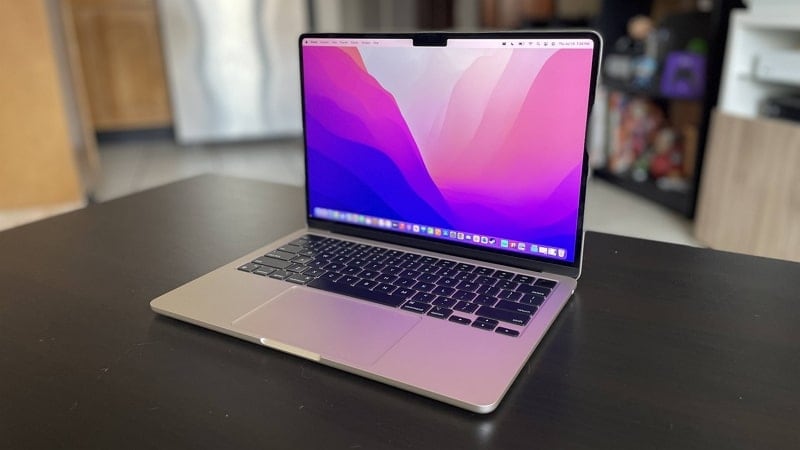
Part 1: Why Delete Apple ID and iCloud Account?
There are as many reasons to leave the Apple ecosystem as why you should join it. Apple devices are known for security, but it also means that you have less control over their settings. It is also a closed ecosystem that forces you to limit yourself to a specific set of apps and services. Some of the reasons why people might want to remove their Apple ID from their MacBook are the following:
- Switching Platforms: If you intend to leave Apple devices and move to another platform like Android, it makes sense to delete the Apple ID. Deleting the ID will make it safer for you to sell your old Apple device to others.
- Privacy Concerns: While Apple is comparatively secure, your data is still stored on Apple servers. It means the company can still access your data. It will require deleting your Apple ID if you want to delete all personal data from Apple servers.
- Changing Account: Getting a new Apple ID means you need to delete your old Apple ID. It will save you the trouble of managing two different IDs with multiple accounts associated with each one.
- Shared Apple ID: It is possible that you were sharing your account with your partner or another family member and now want to get your own account. Removing the old account completely and using a new one can be the safest way.
Part 2: If I Delete Apple ID, Will I Lose Everything?
Deleting your Apple ID is not insignificant because it is your key to the Apple ecosystem, as mentioned above. Though it won’t affect your data storage in local device. However, you will no longer be able to access your data store across multiple Apple services like iCloud, Apple Music, FaceTime, iMessage, or other services that require an Apple ID can no longer be used.
You won’t be able to purchase or access purchased items from the App Store, iTunes Store, or other Apple services. Remember, deleting your Apple ID is a permanent action and cannot be undone.
Part 3: How to Remove Apple ID/iCloud Account from Mac with Password?
The process of removing Apple ID from a Mac is easy and quick. Before removing the Apple ID, you need to remember that all the services that require Apple ID will no longer work. To remove the Apple ID from your MacBook, follow these steps:
Step 1: Open your Mac and access the “System Settings” from the “Apple Logo” icon. Here, click on your Apple ID name from the top of the left sidebar. Scroll to the bottom of the Apple ID tab to locate the “Sign Out” button.
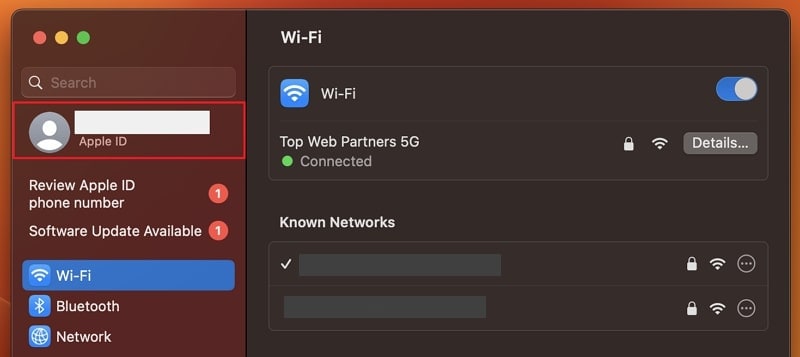
Step 2: Press the “Sign Out” button to remove your Apple ID from the Mac. A prompt will appear asking if you want to keep a copy of your passwords and contacts on your laptop. Select them according to your needs.
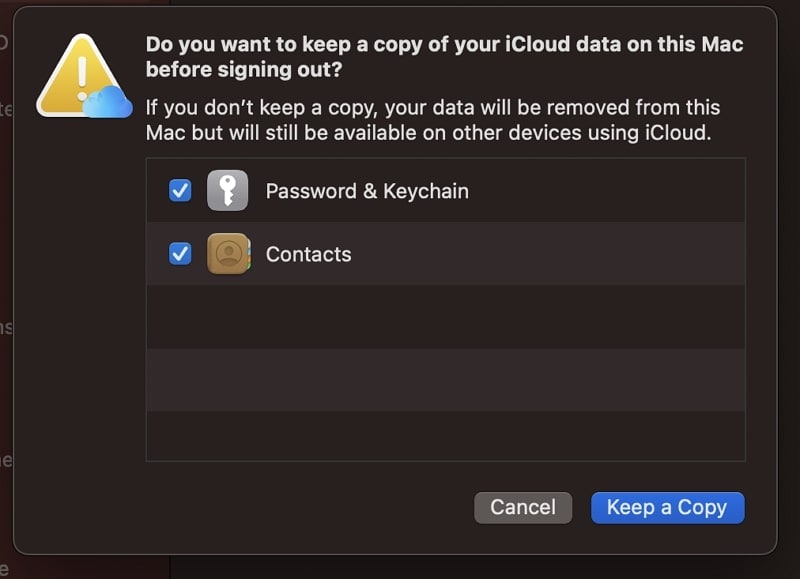
Step 3: On the next window, it will ask you to provide your Apple ID password. Provide the password to complete the process of removing your Apple ID from your Mac.
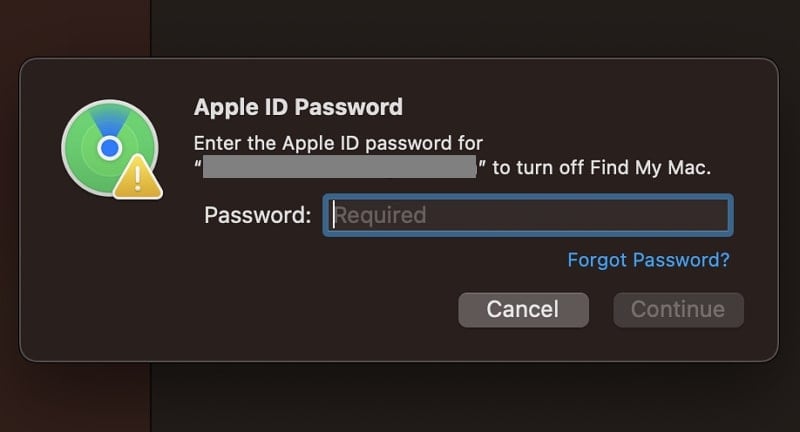
Bonus Tip: How to Remove Apple ID from iPhone/iPad Without Knowing the Password?
Forgetting your Apple ID credentials is also a common reason for wanting to remove your Apple ID from your Apple iPhone XS. Another such case is buying a second-hand iPhone with a logged-in Apple ID without knowing the password. You need a specialized tool like Dr.Fone - Screen Unlock (iOS) to remove Apple ID in these cases.
With Dr.Fone - Screen Unlock (iOS), you can remove the Apple ID from your Apple iPhone XS or iPad and regain access to the Apple iPhone XS device. This software can also remove the iCloud activation lock on an iOS device if you don’t know the login credentials of the previous owner. It is the best tool if your Apple iPhone XS has become locked or disabled due to a forgotten passcode or other issues.
Key Features of Dr.Fone - Screen Unlock (iOS)
- Dr.Fone - Screen Unlock (iOS) can remove passcodes, pattern locks, fingerprint locks, and other types of locks from iOS devices.
- With the help of this tool, you can remove the encryption of your iTunes backup. It will also help you restore your iTunes backup to your new iPhone even if you changed your Apple ID.
- If you have forgotten the username or password of your Apple iPhone XS MDM, this tool allows you to bypass or remove MDM to access the Apple iPhone XS device.
- It can also unlock SM Lock or Carrier Lock on your Apple iPhone XS. That allows you to use your Apple iPhone XS freely if you want to travel internationally.
Steps to use Dr.Fone - Screen Unlock (iOS) for Removing Apple ID
Dr.Fone - Screen Unlock (iOS) has a straightforward interface and provides clear instructions for removing Apple ID from your Apple iPhone XS. Your Apple iPhone XS will be reset during the process, and you will lose the data. It is advised you create a backup before starting the procedure. To start the process of removing Apple ID from your Apple iPhone XS, follow the steps given below:
Step 1: Establish the Connection between iPhone and the Apple iPhone XS device
Use a USB cable to connect your Apple iPhone XS to your computer and launch Dr.Fone. Next, proceed with the “Screen Unlock” tool from the main interface and “Remove Apple ID” on the next screen. Now move to the iPhone, unlock it, and select “Trust” in the “Trust this Computer” pop-up.

Step 2: Put Your Apple iPhone XS into the Recovery Mode
You are required to put your Apple iPhone XS into Recovery Mode before you can remove the Apple ID. Follow the on-screen instructions to the letter to put your Apple iPhone XS into Recovery Mode. Once the Apple iPhone XS has entered the recovery mode, it will reset and restart. After restarting, the process of removal of the Apple ID will begin.

Step 3: Remove Your Apple ID from the iPhone
Wait for the program to complete the process of removing your Apple ID from your phone. Once it is completed, check if the old Apple ID is removed, and you can enter your new Apple ID. Otherwise, you can select “Try Again” to restart the process.

Conclusion
The answer to how to remove Apple ID from MacBook is a straightforward process that can be completed in just a few steps. By following the instructions outlined in this article, you can easily sign out of your account and remove it from your Mac.
Removing the Apple ID with forgotten credentials is complex, but Dr.Fone - Screen Unlock (iOS) has also made it easier. It is an excellent and must-have toolbox to deal with all password-related iPhone problems.
Also read:
- [New] In 2024, Paving a Path to Prominence Instagram's Power Brokers in Your Sphere
- [New] Keeping Consistent Pacing in OBS Broadcasts
- [Updated] Driving Down the Charts A Compreranble Seo Approach for Podcasters for 2024
- Ampacē Andes 1500 in Action: Real-World Testing of an All-in-One Portable Energy Source
- Can I Remove the Apple Watch Activation Lock By Apple iPhone 7 without the Previous Owner?
- Expert Advice: How to Brew an Awkward Potion in Minecraft Easily
- Harnessing Tools for FB Content Extraction for 2024
- How To Create an Apple Developer Account From iPhone 6s
- How To Remove Phone Number From Your Apple ID on Your iPhone 14 Pro?
- How to Reset Apple ID and Apple Password From iPhone SE
- In 2024, How to Unlock Apple ID From your Apple iPhone 12 without Security Questions?
- In 2024, Step-By-Step Guide on Using Gaming YouTube Banner Templates
- In 2024, Top-Notch Solutions for Disabled Apple ID On iPhone 13 Making It Possible
- Mastering the Fix: A Step-by-Step Guide to Overcoming DirectDraw Problems
- Top-Notch Solutions for Disabled Apple ID From Apple iPhone 6s Plus Making It Possible
- Title: In 2024, How To Fix Apple ID Verification Code Not Working From iPhone XS
- Author: Alma
- Created at : 2025-01-05 16:19:14
- Updated at : 2025-01-12 16:30:09
- Link: https://apple-account.techidaily.com/in-2024-how-to-fix-apple-id-verification-code-not-working-from-iphone-xs-by-drfone-ios/
- License: This work is licensed under CC BY-NC-SA 4.0.
